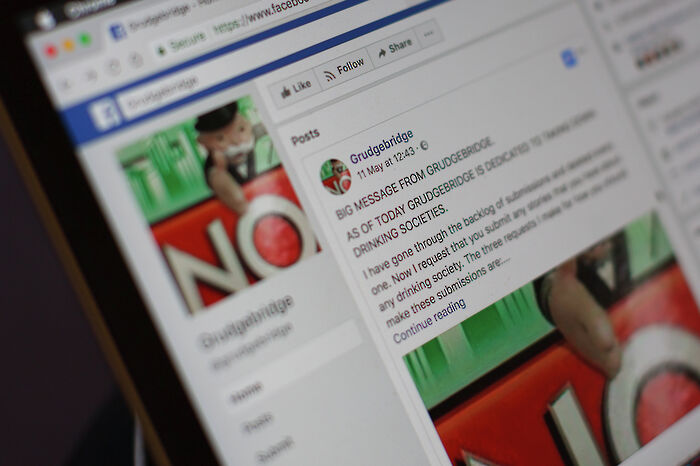It’s not just drinking societies that alienate – Cambridge’s wider drinking culture does too
Underlying social pressures stem from Cambridge’s wider drinking culture, argues Nusrath Jahan Tapadar

The alleged activities reported of some Cambridge drinking societies present them as clubs in which students gather to undo the last 100 years of social change. Over the past week, a lot of ink has rightly been spilt over the existence and nature of these societies, and their place within Cambridge. However, little acknowledgement has been given to how the wider drinking culture in Cambridge can be, in and of itself, rather disconcerting and alienating.
Drinking is a huge part of any university’s culture, but having never touched a sip in my life, it was a strange but interesting experience to be suddenly surrounded by copious amounts of alcohol. As I’ve mentioned before, Freshers’ Week was so heavily focused on activities involving drinking that individuals such as myself who didn’t drink felt incredibly isolated. The transition to university undoubtedly left many people feeling fazed and alone, but alcohol seemed to be the common ground upon which all these strangers could bond, one I couldn’t be part of.
If you’re going to ‘get bevved’, do it because you want to, not because you feel pressured by your environment or friends
The fact that none of my friends from home were heavy drinkers only accentuated my general unfamiliarity with alcohol, which manifested in embarrassing and strange encounters: it took a long time for me to stop asking why the room smelt of vinegar.
While I don’t mind people around me choosing to drink, I did take issue with the structural lack of consideration for those who don’t. At matriculation dinner, for example, my college splurged on both red and white wines, but had no non-alcoholic options besides water. This, however, is but the tip of the iceberg: many shows and events I’ve been to did not even provide water as a non-alcoholic alternative to wine. I find it genuinely confounding that people planning events can completely omit the possibility that somebody who doesn’t consume alcohol, or just doesn’t want to that day, may turn up. How I love being an oversight!
The central role that alcohol plays in many social events, such as club nights and parties, turns these events into exclusive spaces that people who don’t drink cannot enter. Sure, there are some great daytime events held around the university, but just because I don’t drink, it doesn’t mean I don’t want to have fun. I still love parties and I still love dancing. I just don’t feel the need to be intoxicated to enjoy these. I definitely do not enjoy doing nothing in the evenings simply because there’s nothing open beyond 8pm in this town but grotty nightclubs and Gardies.
The detrimental effects of the drinking culture are also, of course, felt by those within it. In a survey published last year of Cambridge students, common reasons for wanting to drink involved peer pressure and overcoming anxiety. Disturbingly, 67% of those surveyed also believed that alcohol had been a factor in facilitating sexual assault. Far from suggesting that alcohol deflects responsibility from the perpetrators, these statistics show how alcohol can aggravate the circumstances surrounding sexual assault. This can be seen in incidents of drink spiking, in addition to the toxic attitudes that can often be amplified in environments involving the consumption of alcohol, an amplification highlighted by many these week during discussions around drinking societies.
It is important then, to remember that the decision over whether or not to drink remains entirely your choice. If you’re going to ‘get bevved’, do it because you want to, not because you feel pressured by your environment or friends, because if that’s the case re-evaluation is probably necessary.
Besides, being the only sober person in most situations has its perks. For a start, you remember everything: I have a wonderful mental stash of embarrassing events that would make brilliant blackmail material should need ever arise. There’s also the smug satisfaction in being able to be exuberant without the help of a £12 wine box. A good friend once gave me these kind words when I expressed early on how exclusionary it felt at times being the only person not drinking: “You don’t need to get drunk to open up, your personality is your alcohol”. As I said, smug satisfaction.
Drinking is such a deeply ingrained element of not only student culture but of the University; from the master’s receptions to formals. The central role at social events isn’t what irritates me most, it’s the relatively non-existent respect for everybody else.
It’s not just drinking societies that have a largely alienating climate caused by their attitude to alcohol, it’s the University as a whole. Yes, my glasses are turned upside down because I don’t want wine, and no, you will not bait me into coming to your comedy night by offering me free wine. Perhaps I’ll use the money I’ve saved from not purchasing any alcohol to buy cartons of Rubicon Mango to place with pride on my table at my next formal: my sweet, unintoxicating protest to the unwavering obsession with ethanol in this place.
 Comment / Cambridge students are too opinionated 21 April 2025
Comment / Cambridge students are too opinionated 21 April 2025 Interviews / Meet the Chaplain who’s working to make Cambridge a university of sanctuary for refugees20 April 2025
Interviews / Meet the Chaplain who’s working to make Cambridge a university of sanctuary for refugees20 April 2025 News / News in brief: campaigning and drinking20 April 2025
News / News in brief: campaigning and drinking20 April 2025 Comment / Cambridge’s tourism risks commodifying students18 April 2025
Comment / Cambridge’s tourism risks commodifying students18 April 2025 Comment / Does the AI revolution render coursework obsolete?23 April 2025
Comment / Does the AI revolution render coursework obsolete?23 April 2025






